Thomas Hobbes was an English philosopher who is considered one of the founders of modern political philosophy. Hobbes is best known for his 1651 book Leviathan, which established the social contract theory that has served as the foundation for most later Western political philosophy. Take a look below for 30 more fun and interesting facts about Thomas Hobbes.
1. In addition to political philosophy, Hobbes also contributed to a diverse array of other fields, including history, jurisprudence, geometry, the physics of gases, theology, ethics and general philosophy.
2. Though on rational grounds he’s a champion of absolutism for the sovereign, Hobbes also developed some of the fundamentals of European liberal thought.
3. His understanding of humans as being matter and motion, obeying the same physical laws as other matter and motion, remains influential.
4. Hobbes termed a society without a central authority as the “state of nature,” and said that it was dangerous, nasty and poor. It’s a state where humans are not obliged to fulfill any basic rights of others, and where self-defense takes priority above everything else.
5. He believed monarchy to be the most suitable form of government, one which guarantees peace as it can solve disputes among citizens, and between state and religion.
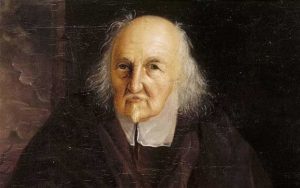
6. To Hobbes, any form of government is better than no government at all, as it could lead to civil war.
7. Obedience is the key to Hobbes’ ideal form of government because if all individuals submit unanimously to a central figure, conflict can be avoided.
8. Even though he was in favor of absolute sovereignty of the authority, he also championed the rights of citizens: equality, the right to choose their ruler, and varying interpretations of law so as to practice freely what isn’t clearly forbidden by law.
9. Hobbes was born at Westport, now part of Malmesbury in Wiltshire, England, on April 5, 1588.
10. Born prematurely when his mother heard of the coming invasion of the Spanish Armada, Hobbes later reported that, “my mother gave birth to twins: myself and fear.”
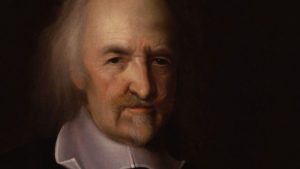
11. His childhood is almost completely unknown, and his mother’s name is unknown.
12. His father, Thomas Sr., was the vicar of Charlton and Westport.
13. Hobbes had a brother, Edmund, who was about two years older, and a sister.
14. Thomas Sr. was involved in a fight with the local clergy outside his church, forcing him to leave London and abandon the family. The family was left in the care of Thomas Sr.’s older brother, Francis, a wealthy merchant with no family.
15. Hobbes was educated at Westport church from the age of four, passed to the Malmesbury school, and then to a private school kept by a young man named Robert Latimer, a graduate of the University of Oxford.
16. Hobbes was a good student, and around 1603, he went up to Magdalen Hall, the predecessor college to Hertford College, Oxford.
17. The principal of Magdalen Hall was John Wilkinson, who was a Puritan and who had some influence on Hobbes.
18. At university, Hobbes appeared to have followed his own curriculum.
19. He didn’t complete his B.A. degree until 1608, but he was recommended by Sir James Hussey, his master at Magdalen, as tutor to William, the son of William Cavendish, Baron of Hardwick, and began a lifelong connection with that family.
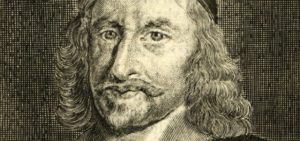
20. Hobbes became a companion to the younger William and they both took part in the grand tour of Europe in 1610.
21. Hobbes was exposed to European scientific and critical methods during the tour, in contrast to the scholastic philosophy that he had learned in Oxford.
22. His scholarly efforts at the time were aimed at a careful study of classic Greek and Latin author, the outcome of which was, in 1628, his great translation of Thucydides’ History of the Peloponnesian War.
23. Although Hobbes associated with literary figures like Ben Jonson and briefly worked as Francis Bacon’s amanuensis, he didn’t extend his efforts into philosophy until after 1629.
24. His employer Cavendish, then the Early of Devonshire, died of the plague in June 1628.
25. The widowed countess dismissed Hobbes, but he soon found work, again as a tutor, to Gervase Clifton, the son of Sir Gervase Clifton, 1st Baronet.
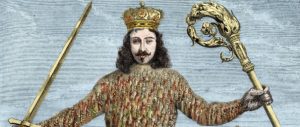
26. He visited Florence in 1636 and was later a regular debater in philosophic groups in Paris, held together by Marin Mersenne.
27. In 1658, Hobbes published the final section of his philosophical system, completing the scheme he had planned more than 20 years before.
28. His final works were an autobiography in Latin verse in 1672, and a translation of four books of the Odyssey into “rugged” English rhymes that in 1673 led to a complete translation of both the Iliad and Odyssey in 1675.
29. In October 1679, Hobbes suffered a bladder disorder, and then a paralytic stroke, from which he died on December 4, 1679, aged 91.
30. His last words were said to have been, “A great leap in the dark,” uttered in his final conscious moments.

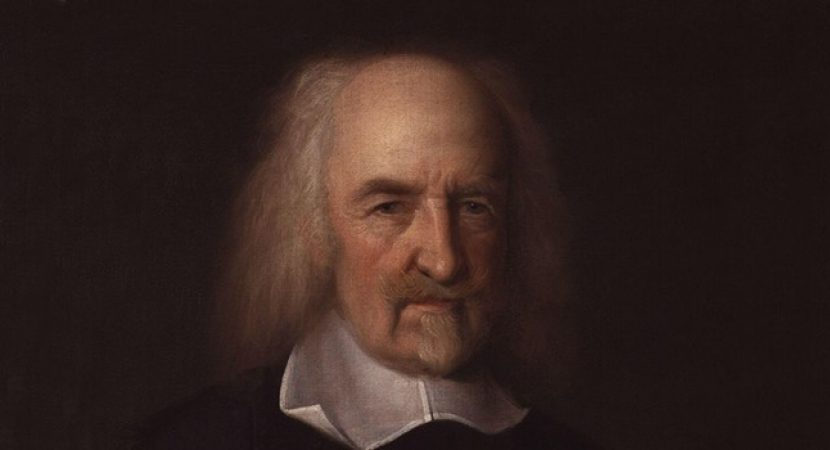



One Comment
Pingback:
July 2, 2018 at 1:31 pm